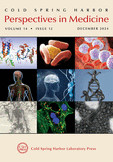Environmental Triggers of Type 1 Diabetes
- Children's Hospital (MK), University of Helsinki and Helsinki University Central Hospital, FI-00014 Helsinki, Finland; Folkhälsan Research Center (MK), FI-00290 Helsinki, Finland; Department of Pediatrics (MK), Tampere University Hospital, FI-33520 Tampere, Finland; and Department of Pediatrics (OS), University of Turku and Turku University Hospital, FI-20014 Turku, Finland
- Correspondence: mikael.knip{at}helsinki.fi
Abstract
Type 1 diabetes (T1D) is perceived as a progressive immune-mediated disease, the clinical diagnosis of which is preceded by an asymptomatic preclinical period of highly variable duration. It has long been postulated that the disease process leading to overt T1D is triggered by an infectious agent, the strongest candidate being a diabetogenic enterovirus. The initiation and progression of the disorder likely requires, in addition to genetic T1D susceptibility, a trigger, an exogenous antigen capable of driving the development of this disease. This may be a dietary antigen similar to gluten in celiac disease. Recent data further suggests that the initiation of autoimmunity is preceded by inflammation reflected by a proinflammatory metabolic serum profile. The cause of the inflammation remains open, but given that the intestinal microbiome appears to differ between individuals who progress to clinical T1D and nonprogressors, one may speculate that changes in the gut microflora might contribute to the inflammatory process.
- Copyright © 2012 Cold Spring Harbor Laboratory Press; all rights reserved










